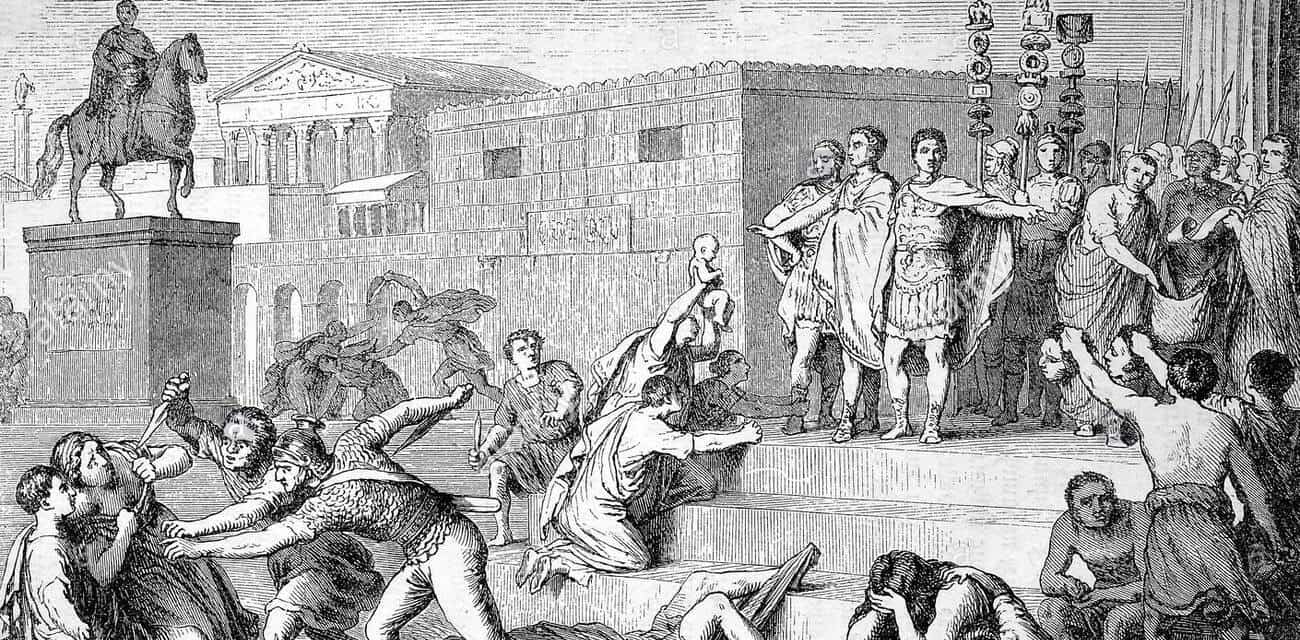The Roman legions with which Ancient Rome conquered the Mediterranean world underwent many changes over the centuries. Originally, they were dense phalanxes that fought with spears like Ancient Greek hoplites. Hard experience in a series of bitter wars led to their transformation into the classic legions, whose men carried a squared curved shield and wielded a short sword, the gladius. Below are thirty things about that and other fascinating Roman history facts.

30. The Roman Legion’s Structure
The legion was the Roman army’s largest military unit, and it underwent a series of changes in its centuries-long existence. In the mid-Roman Republic, it numbered about 3000 heavy infantry divided into maniples of 120 soldiers, each comprised of two 60-man centuries. There were also 1200 skirmishers and 300 cavalry, for a total of around 4500 legionaries. In the late Republic, the centuries were enlarged to 80 men, and six centuries were grouped into a cohort of 480 men. A legion contained nine such standard cohorts, plus a first cohort of the best soldiers, made of five double-strength centuries of 160 men each, for a total nominal legion strength of 5120 men. In practice, about 4500 men was the norm.

In the early Roman Empire, Augustus retained 30 legions, stationed along the borders. They were supported by auxiliary troops of non-Roman citizens, who were granted citizenship at the end of their service. Each legion was led by a Legate, usually a senator appointed by the emperor. Beneath him were six tribunes, one from the senatorial class who served as the legion’s second in command, and five from the lower equestrian class. Third in command was the Camp Prefect, usually a veteran ranker from the lower classes. He had typically served 25 years, including a stint as a centurion of the first cohort. Next came centurions, officers promoted from the ranks to command the legion’s centuries and cohorts. Beneath them came optios, equivalent to First Sergeants, one for each century, assisted by guard commanders, one per optio, and the common legionaries.

